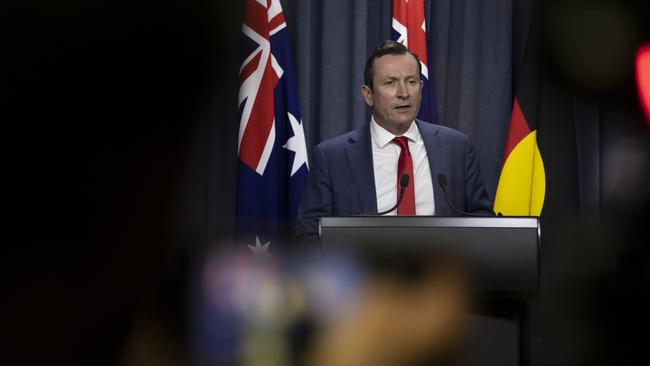
In the next 24 to 48 hours this will be old news so it’s time to first look at how the drama unfolded. This includes the deep problems of the WA government, the short term relief alternatives and what we can learn about our national food supply chain.
For those “in the know,” this week’s crisis started with a tense Monday meeting to review the Perth food situation and likely restoration schedule of the flood damaged rail line between Port Augusta and the WA border.
An ashen faced major WA food retailer confessed that in about a week (February 7) food stocks on its Perth shelves would seriously rundown. That should have created emergency actions but the matter passed.
Instead, attention turned to the Australian Rail Track Corporation (ARTC) which on January 26 had forecast that the line would open between 12 and 17 days. On Monday January 31, the ARTC did not change that forecast which meant that the line was still set to re-open between five and 12 days.
The rail transporters had trains at the ready on the east coast and if they could start the journey in five days (ie February 5) then a severe WA shortages might be averted. The WA government view seemed to be that “she’ll be apples” – the Covid risk is far more important than risks on the supermarket shelves.
When the ARTC put on the table its January 31 report, it might not have changed the previous forecast but the small print was scary. It showed that whereas on January 26 there were seven damaged parts of the track that could not be accessed until new roads were built, now there were 15 non-accessible areas of track – more than double the level of a week earlier. It seems there had been more rain.
The ARTC were undertaking a new detailed assessment and the results would be announced on Thursday, February 3.
The Perth media will have learned of the dangers to the WA food supply either from my report or from their own sources. Very few followed the reports up.
One media outlet was more interested in stood down rail workers in Perth than food shortages. If Mark McGowan’s government says “she’ll be apples” then there is no need to worry appears to have been the general view of WA media.
Sadly, the Covid challenge and border issues have swamped both the WA government and the media. Amazingly, increasingly empty supermarket shelves have not triggered widespread panic buying. While the shortages in aged care homes and cafes were reported, Covid issues overshadowed them.
The ARTC is still trying to assess how long it will take to replace or repair bridges but it is unofficially telling the rail transport operators that they hope that trains can resume on February 18, but there is no iron clad guarantee. There might be a miracle to get trains a few days earlier, but the transport operators on looking at the extent of damage to the bridge and tracks from aerial photos fear that date is optimistic.
Australia has disgracefully run down the Melbourne to Brisbane rail link via Sydney and encouraged the use of trucks via big subsidies. The inland rail project is a mess and the big government money keeps being directed to helping the road supply chains.
To provide some relief for Perth, the quickest solution is to put WA trains on the substandard east coast rail and use the east coast trucks freed up to take food to WA, adding to the trucks already in operation. The East Coast trucks are usually smaller than those normally used to cross the Nullarbor. Truck drivers are scarce and will want to be well rewarded.
Thankfully retailers have already started to send these relief trucks including some that have been diverted from the Northern Territory.
A second proposal to rail food to Port Augusta and truck it across the Nullarbor to be picked up by rail in Kalgoorlie has been given the thumbs down by those experienced in road freight movement.
WA currently can supply its current level meat, dairy and vegetables. But once other foodstuffs run short, a new level of demand will emerge. Meanwhile steel and other freight may have to wait which will cause other problems.
Like all other rail lines, the WA link is too important to the nation to be flood prone. It will happen again.
Footnote: Many readers complained that they could not find the fact on the Reserve Bank web site that it had closed its Melbourne window “permanently”. Soon after my comment was published, The Reserve Bank removed the notice which was a surface manifestation of their Martin Place bunker mentality that has been so damaging to the nation.
I had suspected they would act fast to remove the declaration of “permanent” closure so I took a copy. For the record (and for the much needed Reserve Bank inquiry) here the central bank top brass declaration that was once on the web site:
Reserve Bank of Australia 3.5(8)
Financial institution Melbourne VIC
Permanently closed · 1800 300 288




Sometimes I get no pleasure at being right.
Sadly this week’s headline – “Disruption to food supplies worse than expected as floods put Western Australia in danger” – if anything understated the now locked in Perth food shortages.